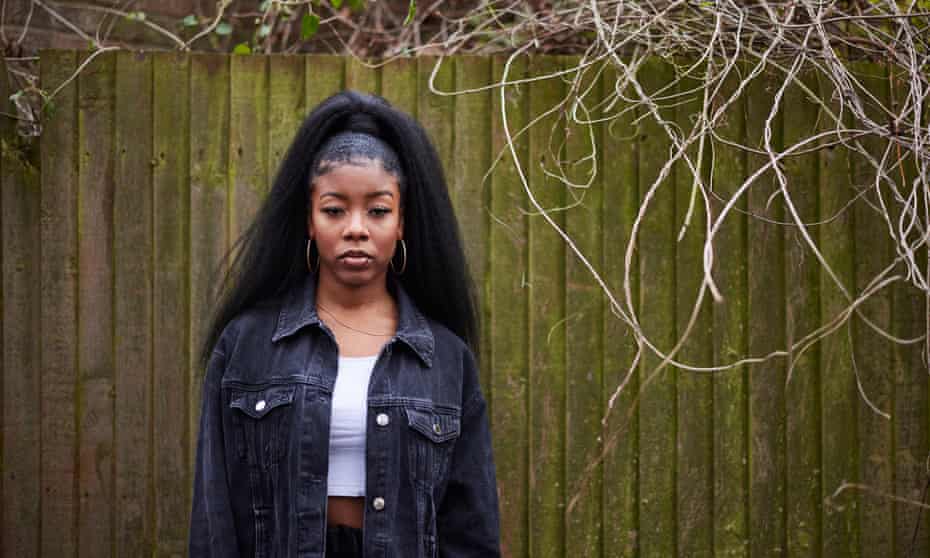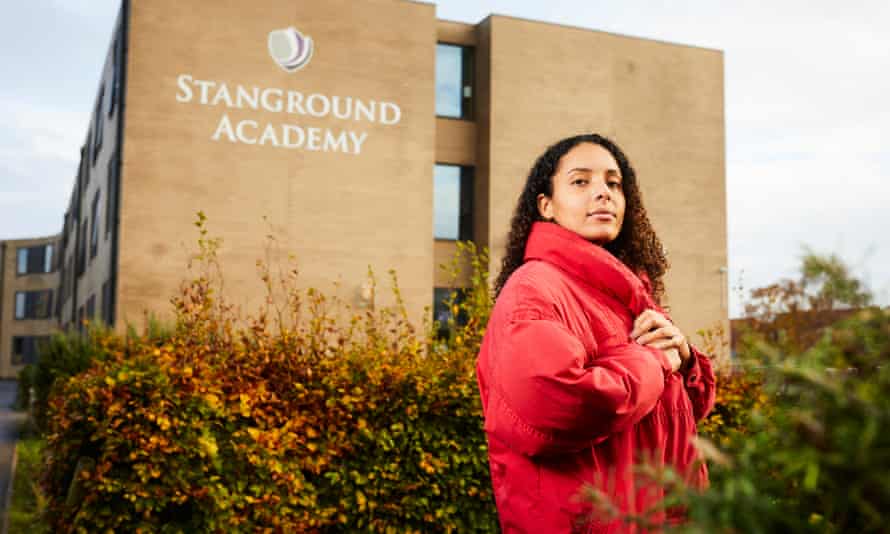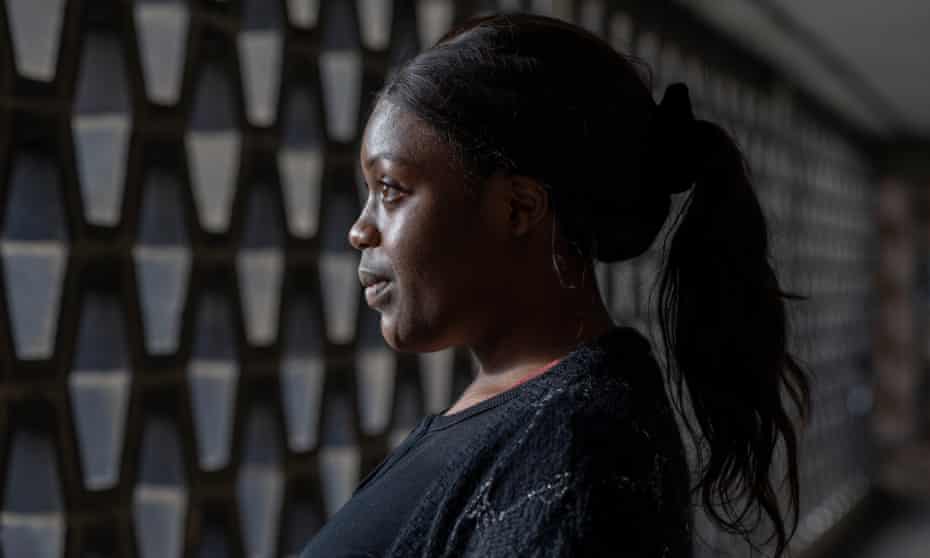‘I was terrified’: pupils inform of getting victimised in British isles universities | Race in education
Naomi Bakare was only 8 when she realised she had no option but to depart her university. The racist bullying she says she experienced professional due to the fact reception had escalated, to the place that her classmates wore masks in her business and instructed her she “smelled”.
“I felt like an alien, an outcast. It was really dependable from the instant I commenced reception to when I remaining in yr 3 – they just wouldn’t leave me alone,” she reported.
Bakare’s tale is just a single of quite a few shocking lived experiences of little ones in modern-day Britain which have been relayed to the Guardian. Together with disproportionate exclusion charges and law enforcement existence in minority ethnic regions, the proof raises thoughts about whether there is a concealed epidemic of racism in British educational institutions.
Bakare, now 17, states she was explained to she appeared like “poo”, and the moment, a pupil slashed a ruler across her arm and threatened to cut it off.
“I was terrified by this position and I felt like almost nothing I did would make them like me,” the teen, from Essex, reported. “I was just hardly ever going to be allowed to in good shape in.”
“I normally explained to the instructors what was going on, hoping that they would intervene, but they never ever did and just enable it keep on. Practically nothing was remaining carried out.”

Although Bakare’s experiences at primary faculty have been more than a decade in the past, their effects are continue to evident. “I seriously struggled with insecurity and anxiousness thanks to how I was addressed in primary school,” she said. “Racism in faculties is such a large dilemma and not plenty of motion is remaining taken to halt it from going on.
“Schools seriously want to perform harder so that youngsters don’t suffer like I did.”
In reaction to a callout, a lot of children and teens had stories about racism in faculties now.
We have saved their names nameless, but the incidents contain a 15-yr-aged boy from Bradford who states he was likened to Osama bin Laden and routinely named the P-word a 14-year-outdated lady from Better Manchester who spoke about remaining forced to move faculties right after her hijab was ripped off and she was pushed into a road and a 15-calendar year-previous boy, who explained being identified as the N-word by his friends, just before becoming manufactured to give an assembly to clarify why it was thought of a racial slur to individuals very same friends.
Meanwhile, a 12-calendar year-old Irish Traveller lady, who attends a secondary college in Sussex, explained how she routinely hid her heritage following recurring racist insults.
“I walk down the halls at college and some persons say ‘p*key’ to their friends – apart from one particular who states it to my encounter. Some men and women really don’t know that it is a truly racist term,” she reported.
“I was essentially going to be residence schooled mainly because my mum didn’t want me to have the exact same negative activities she experienced at faculty. When my mum was at school, other kids would spit at her in the corridor.”
Omie Dale, who describes remaining subjected to racism at her state secondary faculty, Stanground academy, released an open up letter detailing her working experience after George Floyd’s dying past summer months.
Dale, 23, of Gambian heritage, claimed it only happened to her many several years later on that the abuse she and other pupils gained experienced been normalised by the school at the time.
Her letter specific a lot of incidents together with pupils indicating “n***** lips” and “gorilla fingers”, as well as what she explained as an recognized society of xenophobia against Polish and Lithuanian pupils and Islamophobia towards Muslim youngsters.
“For the very first time I became exceptionally conscious of my pores and skin color – and commenced to experience othered,” she explained.
“But what truly stands out to me now was not necessarily what the kids were saying, the title-contacting, but the school not carrying out anything about it. Just allowing for it to materialize.”

Dale recalls a large team of college students setting up to show up at an English Defence League march. The college students ended up not permitted in the stop but she claims there didn’t surface to be any attempt by the university to realize why they had intended to show up at.
“There is even now this unwillingness to check out and fully grasp why racism exists in particular educational institutions. Ignorant attitudes are just brushed less than the carpet in the hope that they will go absent,” she claimed.
As a consequence of her letter Dale, who still left the university in 2013, has been questioned by Greenwood academies belief, which operates Stanground academy between its 37 educational facilities, to grow to be an adviser on racism to Wayne Norrie, the trust’s CEO.
Norrie stated racism and inequality was not tolerated and had no location at any of the trust’s academies.
“Since turning out to be CEO of the trust in 2016, we have recognized a shared motivation, throughout our 37 academies, to foster a assorted, welcoming and inclusive university group. Racism and inequality is not tolerated, and has no location, at any of our academies,” he stated.
“While I am very pleased of the development we have previously produced, there is constantly more perform to be completed. Omie left the university many decades ahead of I joined the rely on but due to the fact finding out of Omie’s working experience, I have been doing work carefully with her to make certain we continue on to have a lifestyle exactly where all pupils and staff members feel welcome, supported and presented with equivalent opportunities to go on and reside delighted and thriving life.”
One more young lady, Appy Kokoricha, now 21, recounted her experiences of hair discrimination when she was one particular of the couple of college students of colour at Kesteven and Grantham girls’ university in Lincolnshire.
“I went to an all-white school – there were being only two other blended-race individuals in my full 12 months,” she explained.
Generally sporting her hair in a braided style with beads, Kokoricha made the decision to have her hair cut shorter. She states this fairly innocuous act elicited a detrimental response from her lecturers.
“I don’t forget a teacher remarking that my new hair made me glimpse ‘a little bit like a drug dealer’,” she mentioned.
Kokoricha spoke of staying pulled out of course by one more teacher, who mentioned her hair was inappropriate. She was supplied a piece of fabric and was questioned to have on it as a scarf to deal with up her hair.

Kokoricha explained she felt humiliated. “I felt like I was staying addressed like I’d assaulted a teacher or some thing. To explain to me that I cannot even wear my own hair mainly because it is offensive to them is ridiculous.”
James Fuller, the headteacher of Kesteven and Grantham girls’ school, mentioned the college was not knowledgeable of any complaints raised or incidents logged in relation to Kokoricha. He added: “Kesteven and Grantham Girls’ College is an all-inclusive girls’ grammar university which prides by itself on inclusiveness as evidenced in our procedures and observe and the constructive ordeals of the girls in attendance at our faculty.
“The school operates a uniform policy which sets out the expectation we have for all college students. This, nevertheless, does make allowances for any spiritual or cultural necessities in respect of the exact same.
“We would refer you to our web page wherever our policies are positioned including our equality and diversity policy to see how the university encourages equality and variety amongst our university local community as a complete.”
The latest study by the YMCA amongst youthful persons of black and blended ethnicity found a lot of felt they had to change to be acknowledged in modern society. Asked about racism in instruction, 95% said they had witnessed racist language at school and 49% explained they believed racism was the major barrier to tutorial attainment.
On top of that, a study performed solely for the Guardian by the Good friends, Family members and Travellers charity of 23 young children from a Gypsy, Roma and Traveller qualifications observed that 61% said they experienced been subject matter to racism at university, 87% said far more really should be taught in educational facilities on Gypsy, Roma and Traveller cultures and histories, and 43% explained racism was the most significant problem they confronted at university.
Penny Rabiger, a co-founder and trustee of the BAMEed Community, symbolizing black and minority ethnic university staff, mentioned racism in educational institutions was not generally overt but was structural far too.
This, she extra, incorporates “seemingly basic enforcements of procedures, regulations or so-termed norms, which act to ‘other’ and exclude a considerable and valued element of our university communities from participation as equals all around the table. The outcomes, as we see, are deeply wounding and longlasting.”
Sarah Mann, the director of Close friends, People and Travellers, questioned what outlook we could assume pupils to have about life “when their to start with introduction into modern society is marred and scarred by racist bullying, a absence of comprehension and an attitude that they themselves are to blame?”
